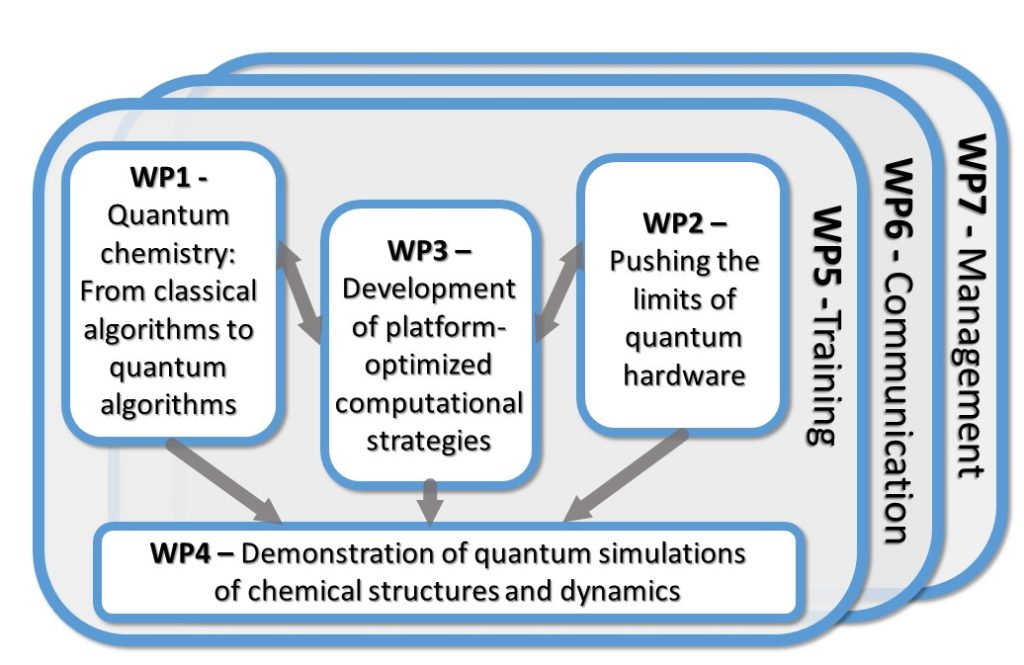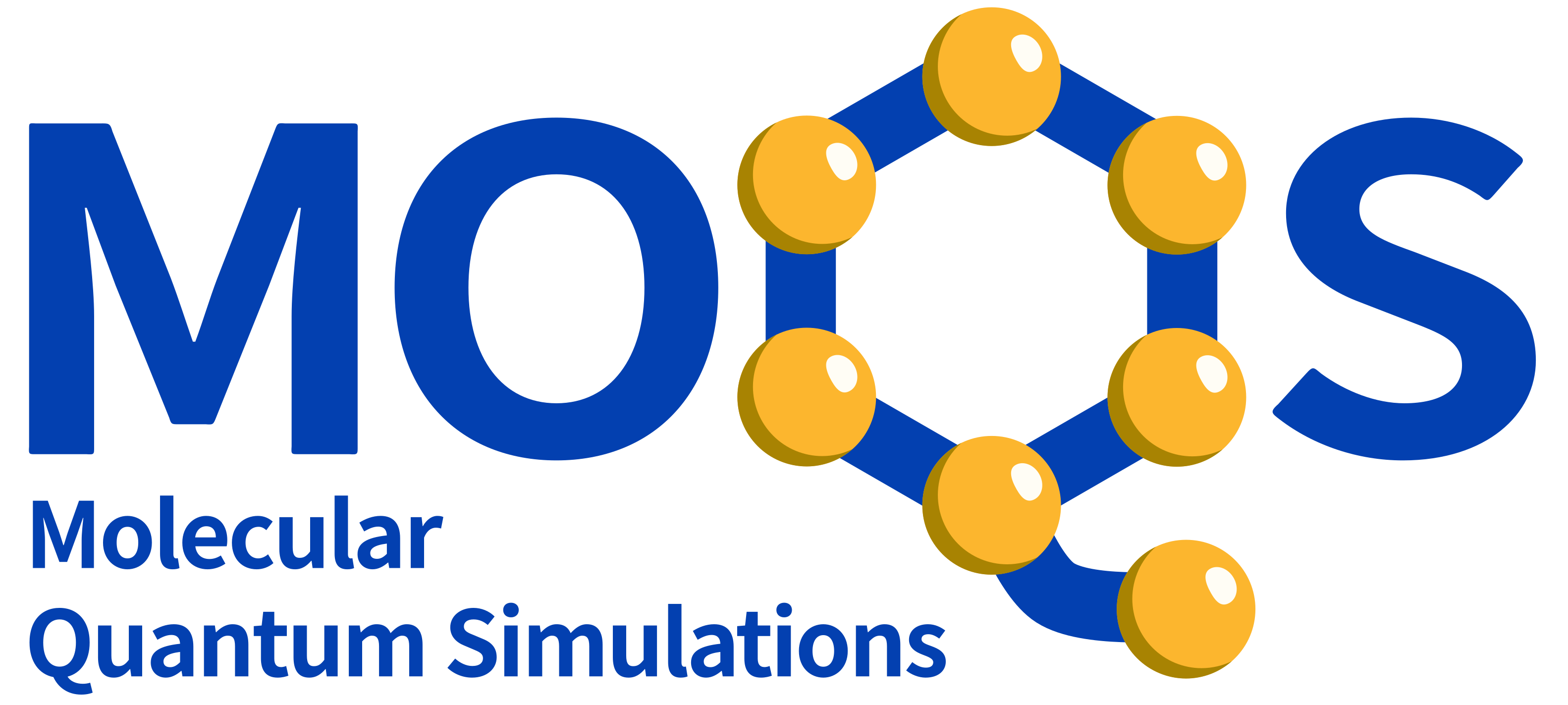The scientific goals of MOQS are to perform experimental and theoretical quantum simulations of comparatively complex molecular structures as well as electron and energy transfer in molecular complexes. To deliver this, we first make the key transition from traditional theoretical quantum chemistry software (such as q. Monte-Carlo, Hartree-Fock, etc.) to intrinsically quantum software that can be incorporated into our superconducting circuit and Rydberg architectures.
We will tackle two sets of problems: (1) molecular structure computations of small molecular compounds and (2) excitation transfer dynamics in molecular complexes.
Four research objectives in four work packages (WP):
WP1: Development of optimal algorithms that exploit quantum resources to solve chemistry problems
WP2: Development of solid state superconducting qubit and atomic systems based on Rydberg states in terms of scalability and interaction control with aim to deliver quantum advantage
WP 3: Development of computational methods that best exploit the unique capabilities of physical platforms, including noisy, lossy, limited resources of near-term quantum hardware
WP4: Quantum simulations of electronic structure and energy transfer dynamics of relevance to chemistry

The scientific work is complemented by a training programme, outreach- and dissemination activities and an efficient management.

